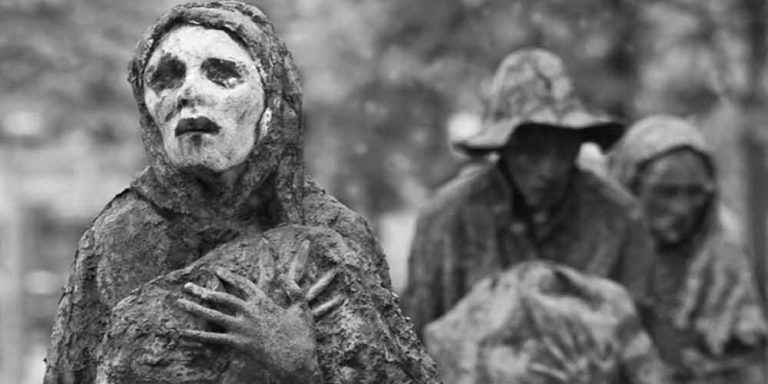
By Leara Rhodes
Eight programs created by the Wexford Town Library celebrated John Banville’s 80th birthday, engaging a large segment of the Wexford community in reading, discussing, and understanding Banville’s writings through several lectures, viewing a film of The Sea, and hearing an interview with Banville. This is an example of how a local library can use local contacts to produce quality programs and encourage reading different authors. It may not be a monument like Joyce https://secretireland.ie/james-joyce-statue-a-tribute-to-irelands-literary-giant/, but it is a celebration. Wexford is a cultural town with a lot to offer, just ask Ed Sheeran who came for the Fleadh https://secretireland.ie/where-is-ed-sheeran-from/.
Auguste Renoir’s slice of life paintings included his friends as a way for him to remember. In The Luncheon of the Boating Party (1881), his friends, including his future wife, Aline Charigot, were on the Hotel Fournaise restaurant terrace. In much the same way, borrowing from John Banville, who often used examples of art to describe his characters, the Wexford Library wanted to take a slice from Banville’s literary life to celebrate him.
Banville is a world-famous author with heavy credentials including major awards. He worked in journalism before writing novels. Awards include the James Tait Black Memorial Prize (1976), the Booker Prize (2005), and the Franz Kafka Prize (2011). He has published dozens of books: novels, trilogies, crime novels (using the name Benjamin Black), plays, non-fiction books, and short stories during a career that has spanned from 1970 to 2025. Plus, he was born in Wexford. Friends and family live here.
Susan Kelly, librarian at the Wexford Town Library, knows the Banville family. Her mother and Banville’s sister, Vonnie Banville-Evans, were in school together. Both families lived in Faythe. As the lead librarian on the project, Kelly felt that the local emphasis needed to be included if the program was to be successful. Readers from four book clubs participated. Eoghan Smith, writer and academic who lectures in English and Creative Writing at Carlow College, chose the books. He is the author of the monograph John Banville: Art and Authenticity (Peter Lang, 2014) and three novels.
“I chose books as entry points into Banville’s literary canon,” says Smith after one of the discussions. “The books I chose are key works in Banville’s catalogue. Each one represents a significant stage in his artistic evolution. Birchwood (1973) is an early novel that establishes many of his important themes, motifs and concerns. It is also a European, postmodernist, experimental novel; this marked Banville out as different from many of his Irish contemporaries. The later novels trace these ideas in ever more sophisticated ways, so the reading program was designed to provide the readers with major punctuation points. I included The Book of Evidence (1989) and The Sea (2005) as his two major novels. I included one his crime thrillers, The Drowned (2024), as an example of his foray into that genre.”
An insight that Smith had because of the book discussions was that the readers recognized places in Banville’s books. “Banville draws on local referents in many of his novels although they are often disguised and transformed. The town of Ballyless in The Sea for instance is based on Rosslare in the 1950s. He utilizes the surnames, Big Houses, towns and landscapes of Wexford in his work, and though they are rarely explicitly identified, elements would be recognizable to local readers.”
Professor Christopher Morash of Trinity College in his lecture illustrated how Banville writes and how that can give a deeper understanding into Banville’s work. Banville writes by hand in bound notebooks when he writes under the Banville name. When he writes under the Benjamin Black name, his crime novels, he uses a computer. Morash explained that Banville’s voice is there in the first line of his books and used The Sea as an example: “They departed, the gods, on the day of the strange tide.”
The Sea was made into a movie and was shown at the library. Though Banville was engaged as the script writer, the film took on a film noir look with heavy light on faces much like Dutch paintings. Some of Banville’s humor was there but the extensive vocabulary used in books like The Sea, was missing.
The month-long library celebration will end on October 23 with Banville in conversation with Professor Derek Hand the Executive Dean of the Faculty of Humanities and Social Sciences in Dublin City University. The Liffey Press published his book John Banville: Exploring Fictions in 2002. Professor Hand edited a special edition of the Irish University Review on Banville in 2006.
The library leaned heavily on scholars who had written about Banville and who understand Irish fiction. The library also knew that the library’s readers would be in the audience, including Vonnie Banville-Evans. For those of us who do not live in Wexford, opportunities like these lectures and films offer a view of the town scholarship that tourist attractions often miss. They are free, take advantage and learn.
Leara Rhodes is a Professor of Journalism Emerita from the University of Georgia who has written three novels published by Old Fort Press in Savannah, Georgia. She is visiting Wexford and researching her fourth novel which will be set in Wexford. www.leararhodes.com


